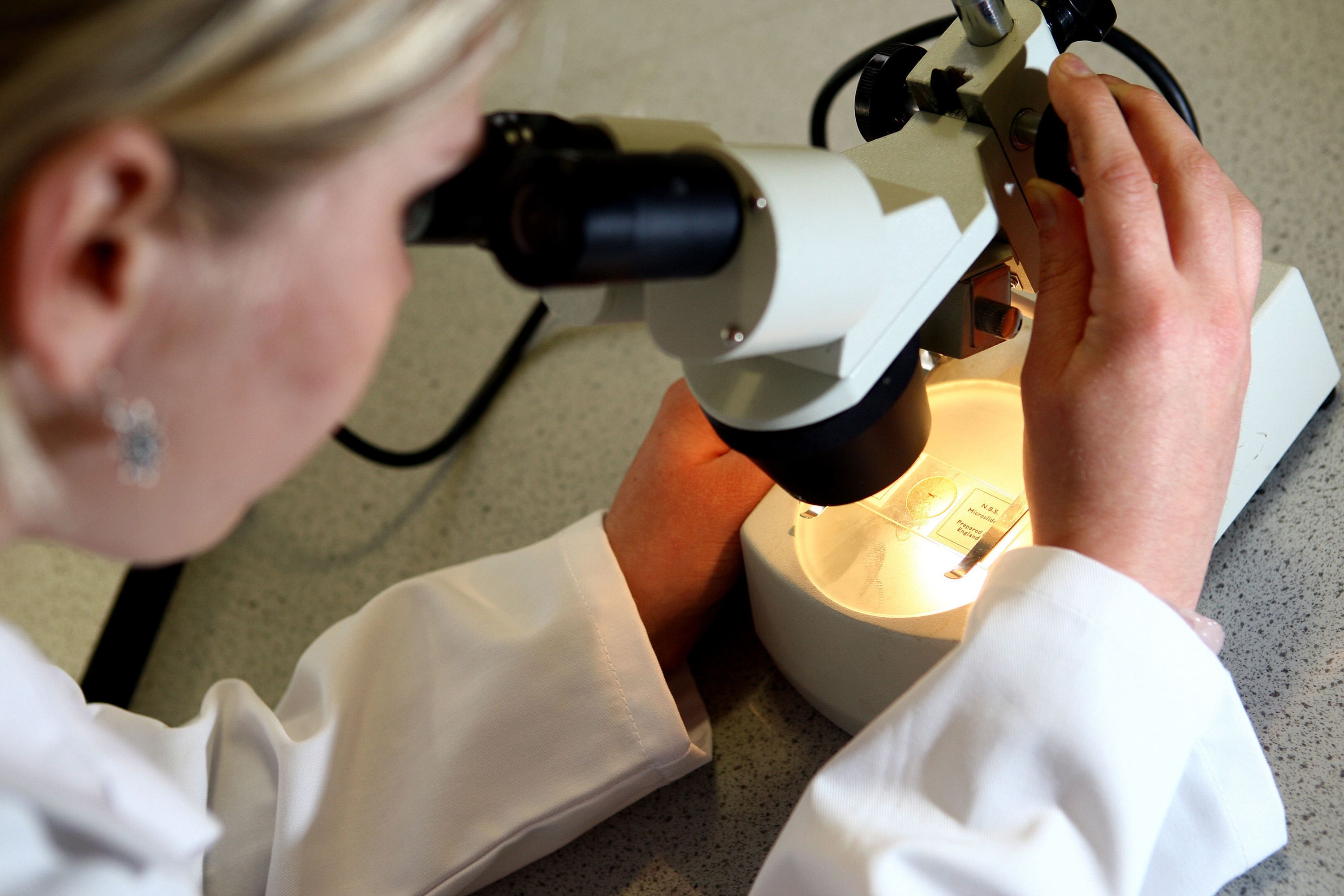Scotland has among worst survival rates for serious cancers, taskforce warns
South Korea, Belgium, the US, Australia and China have the highest five-year survival rates for less survivable cancers.

Your support helps us to tell the story
From reproductive rights to climate change to Big Tech, The Independent is on the ground when the story is developing. Whether it's investigating the financials of Elon Musk's pro-Trump PAC or producing our latest documentary, 'The A Word', which shines a light on the American women fighting for reproductive rights, we know how important it is to parse out the facts from the messaging.
At such a critical moment in US history, we need reporters on the ground. Your donation allows us to keep sending journalists to speak to both sides of the story.
The Independent is trusted by Americans across the entire political spectrum. And unlike many other quality news outlets, we choose not to lock Americans out of our reporting and analysis with paywalls. We believe quality journalism should be available to everyone, paid for by those who can afford it.
Your support makes all the difference.Scotland has some of the worst survival rates for some of the most serious cancers, a taskforce has warned.
Data from the less survivable cancers taskforce (LSCT) showed that out of 33 countries of comparable wealth and income levels, Scotland ranks as low as 32nd for five-year survival for pancreatic cancer, 31st for stomach cancer and 29th for lung cancer.
Survival rates for oesophageal, brain and liver cancers are higher at 25th, 24th and 12th respectively, the taskforce said.
The rate of less survivable cancers is similar across all UK nations.
The taskforce – which represents six less survivable cancers: lung, liver, brain, oesophageal, pancreatic and stomach cancers – released their findings on less survivable cancers awareness day.
Findings are based on new analysis of existing data and the world survival rankings of cancers of the lung, liver, brain and oesophagus.
Scotland and the UK ranks below most other comparable countries for the six cancers.
South Korea, Belgium, the US, Australia and China have the highest five-year survival rates for less survivable cancers.
If people in the UK survived at the same rate, then an additional 8,000 lives could be saved annually, the figures showed.
If we could bring the survivability of these cancers on level with the best-performing countries in the world, then we could gain valuable years for thousands of patients
Currently, in the UK around 15,400 people will survive for five years following a diagnosis of a less survivable cancer – if the UK had survival rates comparable to the top five performing countries, this number could be close to 24,000.
Experts believe a mix of delayed diagnosis and slow access to treatment are some of the reasons behind the UK’s survival rates.
Out of 10,000 people diagnosed with pancreatic cancer annually in the UK, just 10% receive surgery while seven in 10 receive no treatment at all.
The less survivable cancers make up nearly half of all common cancer deaths in the UK and more than 90,000 people are diagnosed with one of the less survivable cancers in the UK every year.
Despite their prevalence, the less survivable cancers receive a fraction (16.6%) of research funding of more survivable cancers.
Lorraine Dallas, chair of the less survivable cancers taskforce Scotland group, said: “We know that people diagnosed with a less survivable cancer are fighting against the odds for survival, but the figures we’re sharing today show that those living in Scotland and the rest of the UK have even worse prospects than in comparable countries.
“To change this poor outlook for people across the country, we’re calling on all UK governments to commit to speeding up diagnosis, improving existing diagnostic routes and developing new treatments by investing in research into less survivable cancers.
“If we could bring the survivability of these cancers on level with the best-performing countries in the world, then we could gain valuable years for thousands of patients.”
Scottish Labour’s health spokeswoman Jackie Baillie said: “The data shared by the less survivable cancers taskforce today is devastating for people living in Scotland.
“Less survivable cancers are not uncommon and it’s unacceptable that we’re lagging so far behind other countries when it comes to survivability.
“Politicians of all parties across the UK need to come together to improve outcomes for these patients by working towards better diagnosis and treatment options.
“I fully support less survivable cancers awareness day and anyone affected by these terrible cancers.”
A Scottish Government spokesman said: “We are committed to improving cancer survival, providing equitable access to treatment and finding cancer early.
“The earlier cancer is diagnosed the easier it is to treat, and even cure, which is why earlier and faster diagnosis is a pivotal part of our new 10-year cancer strategy and we continue to invest in our Detect Cancer Earlier Programme.
“Cancer remains a national priority for the NHS and the Scottish Government, and we continue to have a focus on the less survivable cancers and improving their outcomes.
“Interim evaluation of our rapid cancer diagnostic services, currently operational in five NHS boards across Scotland, shows that they are diagnosing less survivable cancers such as hepatobiliary pancreatic and lung cancers.
“Boards are working together to deliver additional capacity for so they can see and treat patients faster and we have funded mobile scanners to provide additional capacity for MRI and CT, supporting patients affected by cancer.
“We will also increase funding for chemotherapy services by £10.5m over the next four years.”